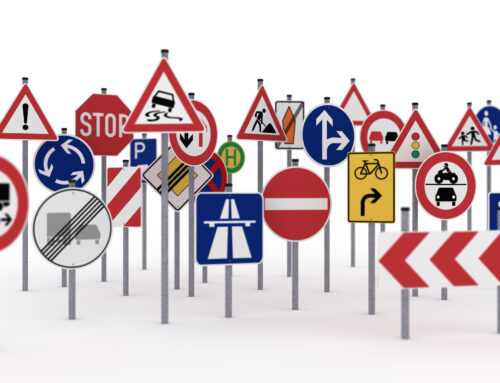How do we manage our children’s concerns, anxiety and fears after the horrific story this week of the Dreamworld tragedy?
This story came coming into our lounge room and was on every news feed, channel and radio outlet. There was no escape, we all heard and we all know about this dreadfully sad tragedy. We are all affected, saddened and distressed. Our hearts are with the families who have lost their precious family members, mother or dad.
Many children may have gone on this ride either with friends, siblings or parents; in fact, many of us have visited Dreamworld and enjoyed the rides. We feel connected; we have been there. We feel it, see it, hear it even have pictures of us on it or near it in our albums.
This story is more than confronting; it is personal.
How can we protect not only our children but to a lesser degree ourselves from the stress and anxiety of these tragedies we see in our lounge room of a night? A study conducted after the 2013 Boston Marathon bombings indicated that people exposed to more than six hours of daily media coverage were likely to experience symptoms of stress. Professor Roxane Cohen Silver from the study advised: “Media exposure was a stronger predictor of an acute stress response than having been there.”
Children are very sensitive to news stories such as the Dreamworld tragedy as many may have been on that or similar rides. They feel the same thing may happen to them or their family if anyone goes on a ride again. Younger children, preschool age and younger, will not understand the impact of this tragedy, they can, however, see the impact it has on their parents and it is this impact that can create stress and fear in the younger child.
Children under the age of 6 years should not be privy to any news stories and parents need to ensure they are protected. If a news story does enter the home then turn it off, stop any ongoing news being repeated within their ear shot and only speak about it without them near you. If they ask questions, you can say something sad occurred a long way away and does not impact them or you or your area. Young children are satisfied with this. Television is visual and once a picture has been seen it is impossible to be unseen. Children lack the capacity to understand and can confuse facts with fear. They can believe and feel it is in their life now, not far away or elsewhere.
Once children grow older, they usually discuss the event at school, in the classroom and hopefully with parents. But how do we manage these emotions, so many of our children feel in the aftermath of such a tragedy? Parents do need to discuss the event with the child once the child enquires. They need to tell them a basic truth that something sad happened in Dreamworld and how now the authorities are checking everything to make sure all rides are now ever extra safe, so nothing bad happens again.
It is important we leave our children with a good and positive feeling after the confrontation of such a tragic event.
How do we protect them, should we protect them from these stories and what can we do to ensure they learn to cope with their fears or anxieties?
Children under six years should not be listening to television news stories of a night as they lack the capacity to understand the event. Subtle comment of yes something happened a long way away is usually enough for them.
Children 6 – 11 years have the ability to access information more freely. While they may understand the event happened they may not be able to fully comprehend it. The event could be close to home in their mind even if it happened a distance away.
Children 12 – 16 years have full access to all world news; they can read, understand. Children, many people, in fact, struggle with the why and the what-if? We must discuss and answer our children’s questions once they speak about it. Some children can let these news stories fade away and slide by; we do not need to bring it up if it is not on their direct radar.
How then do parents protect their children, discuss the events that have occurred and soothe their concerns and anxieties?
Parents need to be aware of their conversations together, as children will hear and pickup on the parent’s fears or emotions.
Tips to talk to your children to help allay their fears after such a tragedy include:
- Guard younger children against listening to news stories
- Answer briefly any questions if they have heard discussion of the tragedy
- Ensure they feel safe with you as often they fear a separation from you when younger
- Provide them with positive stories such as how great it is now they are making all rides extra safe
- Answer any questions they have. Only provide answers to their questions and keep your responses brief
- Keep an eye on your child to determine if they are affected; notice any withdrawal or focus on each news report, then discuss their feelings and emotions so they can unload
- Supervise their internet use to ensure they are not seeking additional news coverage that may be escalating the tragedy
- If they wish to watch the latest story be with them to reassure them
- Check in on them over the next few days and ask how they feel
- If they are struggling, suggest they put a name to their feeling, then discuss that feeling name, so it disassociates them from it
These types of tragedies can be an opportunity for parents to have conversations with their children about losing people you love and how to grieve. Showing compassion, concern and providing affection supports our children. Demonstrate to the child that distress is a process, and that crying is okay.
The most important thing to remember with our children is, they are becoming more aware of life tragedies. They are informed with daily newsfeeds from all over the world; they often witness events as they happen and it can immerse them into the event. As they develop they learn, as well as happy and fun times, life can also present sad or upsetting times or events. It is part of growing and maturing to understand and recognise the variety of events that can occur while reflecting more on the safe, happy daily life they live.
It is important the communication gateways remain open with their parents. Never dismiss their thoughts or feelings as trivial as to them they may be massive.
If you ever feel your child is struggling with fear or anxiety due to these types of events, I urge parents to seek professional help for their child.
Read more information from Dr Karen






